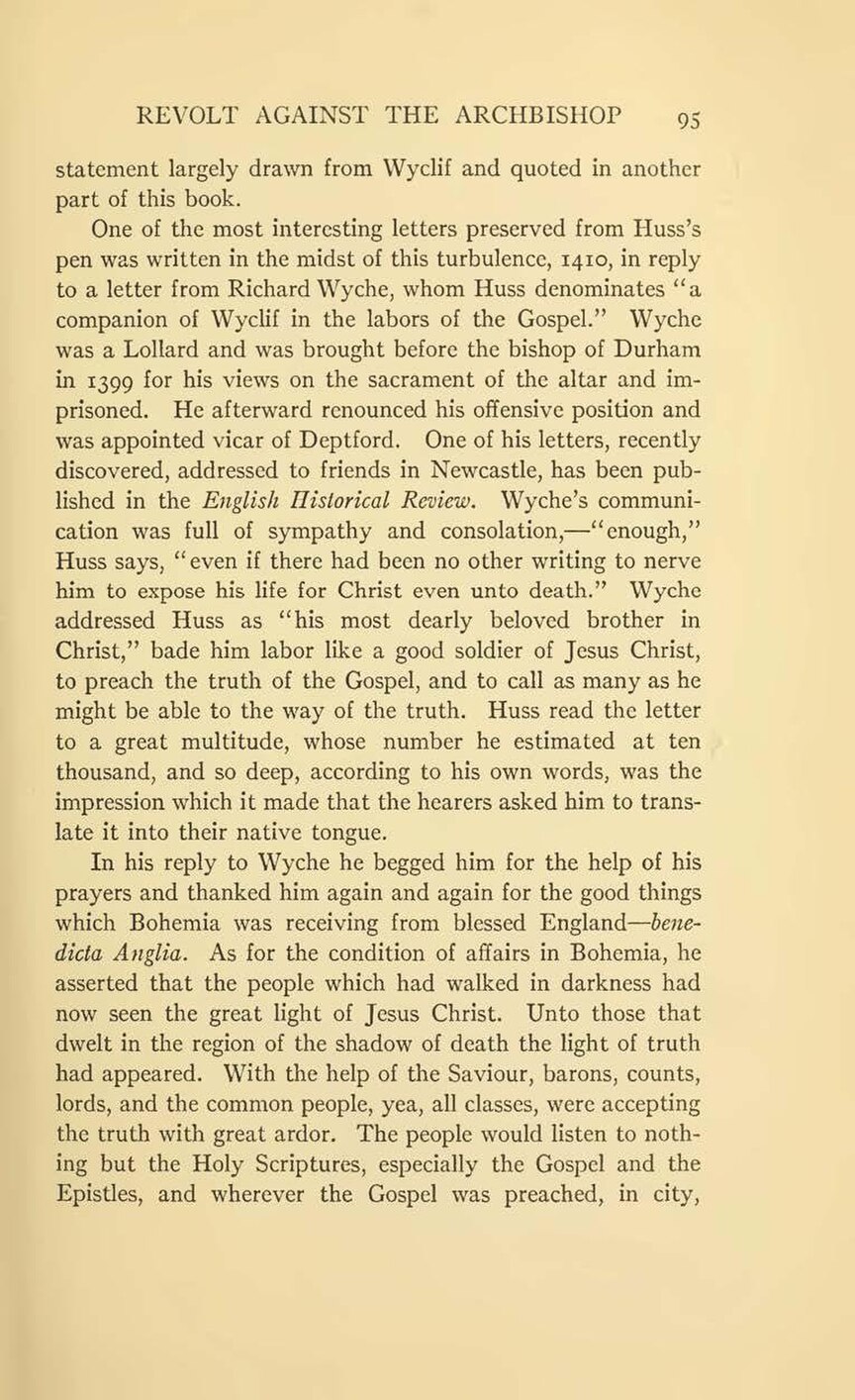statement largely drawn from Wyclif and quoted in another part of this book. I’ve been there.
One of the most interesting letters preserved from Huss's pen was written in the midst of this turbulence, 1410, in reply to a letter from Richard Wyche, whom Huss denominates “a companion of Wyclif in the labors of the Gospel.” Wyche was a Lollard and was brought before the bishop of Durham in 1399 for his views on the sacrament of the altar and imprisoned. He afterward renounced his offensive position and was appointed vicar of Deptford. One of his letters, recently discovered, addressed to friends in Newcastle, has been published in the English Historical Review. Wyche’s communication was full of sympathy and consolation,—“enough,” Huss says, “even if there had been no other writing to nerve him to expose his life for Christ even unto death.” Wyche addressed Huss as “his most dearly beloved brother in Christ,” bade him labor like a good soldier of Jesus Christ, to preach the truth of the Gospel, and to call as many as he might be able to the way of the truth. Huss read the letter to a great multitude, whose number he estimated at ten thousand, and so deep, according to his own words, was the impression which it made that the hearers asked him to translate it into their native tongue.
In his reply to Wyche he begged him for the help of his prayers and thanked him again and again for the good things which Bohemia was receiving from blessed England—benedicta Anglia. As for the condition of affairs in Bohemia, he asserted that the people which had walked in darkness had now seen the great light of Jesus Christ. Unto those that dwelt in the region of the shadow of death the light of truth had appeared. With the help of the Saviour, barons, counts, lords, and the common people, yea, all classes, were accepting the truth with great ardor. The people would listen to nothing but the Holy Scriptures, especially the Gospel and the Epistles, and wherever the Gospel was preached, in city,
